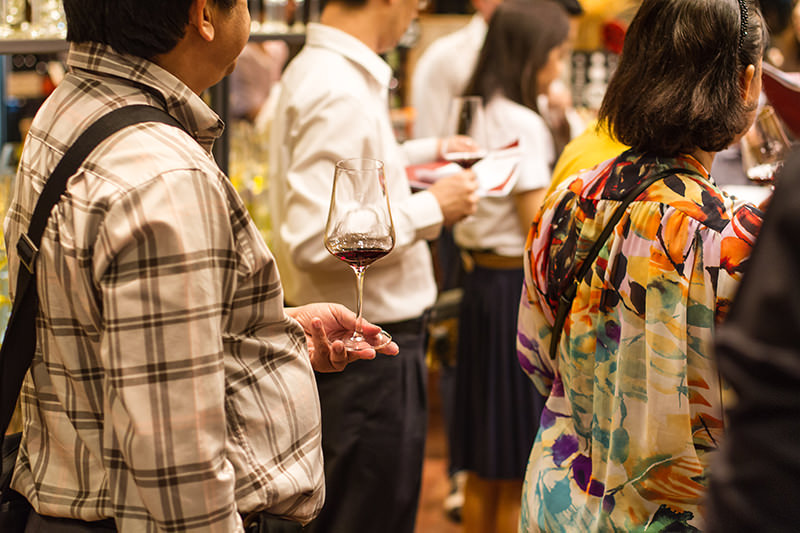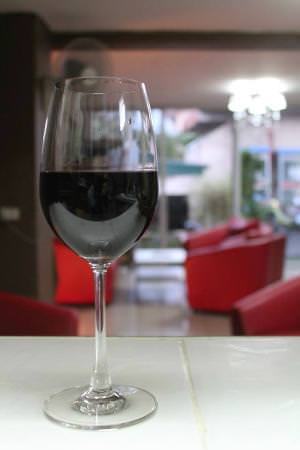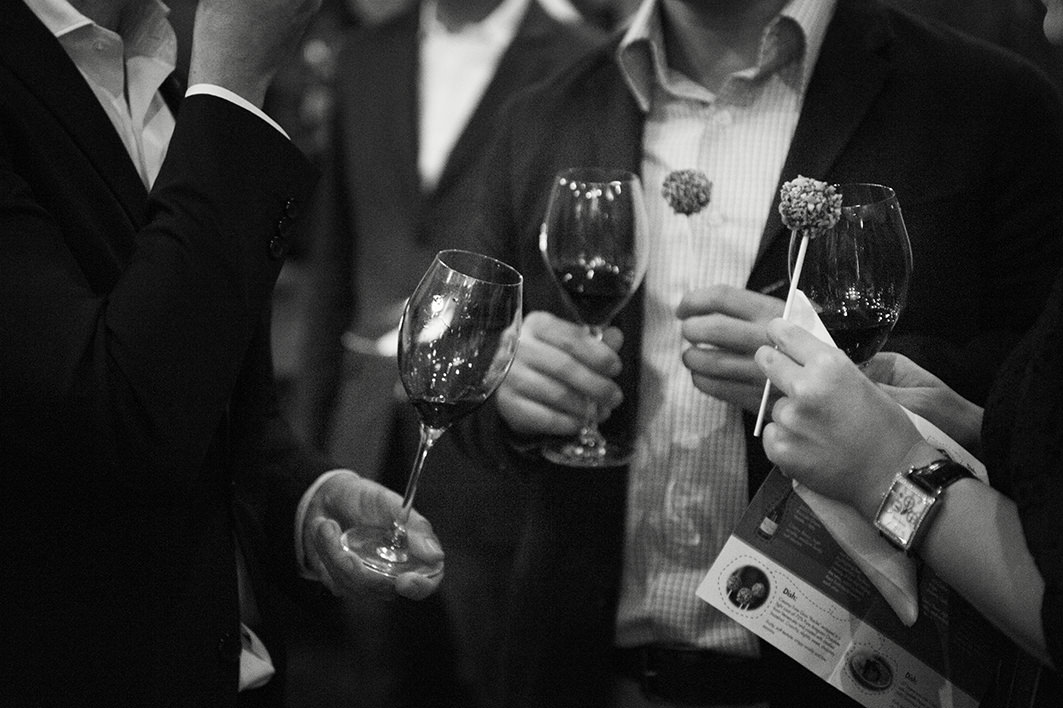Sometimes wine seems inaccessible to beginners. So many words, flavors, qualities and things to remember. For goodness’ sake, we just want to sip my wine, not enroll in a Phd.
Still, learning the basics will make it easier for you to understand your wine and enjoying it.
Here there are some words you will come around in the wine world. Since there are many, this first part will focus on the main wine words from A to E.
Acetic:
Wines, no matter how well made, contain quantities of acetic acidity that has a vinegary smell. If there is an excessive amount of acetic acidity, the wine will have a vinegary smell and be a flawed, acetic wine.
Acidic:
Wines need natural acidity to taste fresh and lively, but an excess of acidity results in an acidic wine that is tart and sour.
Acidity:
The acidity level in a wine is critical to its enjoyment and livelihood. The natural acids that appear in wine are citric, tartaric, malic, and lactic. Wines from hot years tend to be lower in acidity, whereas wines from cool, rainy years tend to be high in acidity. Acidity in a wine can preserve the wine’s freshness and keep the wine lively, but too much acidity, which masks the wines flavors and compresses its texture, is a flaw.
Aftertaste:
As the term suggests, the taste left in the mouth when one swallows is the aftertaste. This word is a synonym for length or finish. The longer the aftertaste lingers in the mouth (assuming it is a pleasant taste), the finer the quality of the wine.
Aggressive:
Aggressive is usually applied to wines that are either high in acidity or have harsh tannins, or both.
Angular:
Angular wines are wines that lack roundness, generosity, and depth. Wine from poor vintages or wines that are too acidic are often described as being angular.
Aroma:
Aroma is the smell of a young wine before it has had sufficient time to develop nuances of smell that are then called its bouquet. The word aroma is commonly used to mean the smell of a relatively young, unevolved wine.
Astringent:
Wines that are astringent are not necessarily bad or good wines. Astringent wines are harsh and coarse to taste, either because they are too young and tannic and just need time to develop, or because they are not well made. The level of tannins (if it is harsh) in a wine contributes to its degree of astringence.
Austere:
Wines that are austere are generally not terribly pleasant wines to drink. An austere wine is a hard, rather dry wine that lacks richness and generosity. However, young Rhônes are not as austere as young Bordeaux.
Backward:
An adjective used to describe (1) a young largely unevolved, closed, and undrinkable wine, (2) a wine that is not ready to drink, or (3) a wine that simply refuses to release its charms and personality.
Balance:
One of the most desired traits in a wine is good balance, where the concentration of fruit, level of tannins, and acidity are in total harmony. Balanced wines are symmetrical and tend to age gracefully.
Barnyard:
An unclean, farmyard, fecal aroma that is imparted to a wine because of unclean barrels or unsanitary winemaking facilities.
Berrylike:
As this descriptive term implies, most red wines have an intense berry fruit character that can suggest blackberries, raspberries, black cherries, mulberries, or even strawberries and cranberries.
Big:
A big wine is a large-framed, full-bodied wine with an intense and concentrated feel on the palate. Most red Rhône wines are big wines.
Blackcurrant:
A pronounced smell of blackcurrant fruit is commonly associated with certain Rhône wines. It can vary in intensity from faint to very deep and rich.
Body:
Body is the weight and fullness of a wine that can be sensed as it crosses the palate. Full-bodied wines tend to have a lot of alcohol, concentration, and glycerin.
Botrytis cinerea:
The fungus that attacks the grape skins under specific climatic conditions (usually alternating periods of moisture and sunny weather). It causes the grape to become super-concentrated because it causes a natural dehydration. Botrytis cinerea is essential for the great sweet white wines of Barsac and Sauternes. It rarely occurs in the Rhône Valley because of the dry, constant sunshine and gusty winds.
Bouquet:
As a wine’s aroma becomes more developed from bottle aging, the aroma is transformed into a bouquet that is hopefully more than just the smell of the grape.
Brawny:
A hefty, muscular, full-bodied wine with plenty of weight and flavor, although not always the most elegant or refined sort of wine.
Briery:
I think of California Zinfandel when the term briery comes into play, denoting that the wine is aggressive and rather spicy.
Brilliant:
Brilliant relates to the color of the wine. A brilliant wine is one that is clear, with no haze or cloudiness to the color.
Browning:
As red wines age, their color changes from ruby/purple to dark ruby, to medium ruby, to ruby with an amber edge, to ruby with a brown edge. When a wine is browning it is usually fully mature and not likely to get better.
Carbonic maceration:
This vinification method is used to make soft, fruity, very accessible wines. Whole clusters of grapes are put into a vat that is then filled with carbonic gas. This system is used when fruit is to be emphasized in the final wine in contrast to structure and tannin.
Cedar:
Rhône reds can have a bouquet that suggests either faintly or overtly the smell of cedar wood. It is a complex aspect of the bouquet.
Chewy:
If a wine has a rather dense, viscous texture from a high glycerin content, it is often referred to as being chewy. High-extract wines from great vintages can often be chewy, largely because they have higher alcohol hence high levels of glycerin, which imparts a fleshy mouthfeel.
Closed:
The term closed is used to denote that the wine is not showing its potential, which remains locked in because it is too young. Young wines often close up about 12-18 months after bottling, and depending on the vintage and storage conditions, remain in such a state for several years to more than a decade.
Complex:
One of the most subjective descriptive terms used, a complex wine is a wine that the taster never gets bored of, and finds interesting to drink. Complex wines tend to have a variety of subtle scents and flavors that hold one’s interest in the wine.
Concentrated:
Fine wines, whether they are light, medium, or full-bodied, should have concentrated flavors. Concentrated means that the wine has a depth and richness of fruit that gives it appeal and interest. Deep is a synonym for concentrated.
Corked:
A corked wine is a flawed wine that has taken on the smell of cork as a result of an unclean or faulty cork. It is perceptible in a bouquet that shows no fruit, only the smell of musty cork, which reminds me of wet cardboard.
Cuvée:
Many producers in the Rhône Valley produce special, deluxe lots of wine or a lot of wine from a specific grape variety that they bottle separately. These lots are often referred to as cuvées.
Decadent:
If you are an ice cream and chocolate lover, you know the feeling of eating a huge sundae of rich vanilla ice cream lavished with hot fudge and real whipped cream. If you are a wine enthusiast, a wine loaded with opulent, even unctuous layers of fruit, with a huge bouquet, and a plump, luxurious texture can be said to be decadent.
Deep:
Essentially the same as concentrated, expressing the fact that the wine is rich, full of extract, and mouth filling.
Delicate:
As this word implies, delicate wines are light, subtle, understated wines that are prized for their shyness rather than for an extroverted, robust character. White wines are usually more delicate than red wines. Few Rhône red wines can correctly be called delicate.
Demi-muid:
650-liter Burgundy barrels which are essentially the equivalent of three regular barrels.
Diffuse:
Wines that smell and taste unstructured and unfocused are said to be diffuse. When red wines are served at too warm a temperature they often become diffuse.
Double decanting:
This is done by first decanting the wine into a decanter and then rinsing the original bottle out with non-chlorinated water and then immediately re-pouring the wine from the decanter back into the bottle. It varies with the wine as to how long you cork it.
Dumb:
A dumb wine is also a closed wine, but the term dumb is used more pejoratively. Closed wines may need only time to reveal their richness and intensity. Dumb wines may never get any better.
Earthy:
May be used in both a negative and a positive sense; however, I prefer to use earthy to denote a positive aroma of fresh, rich, clean soil. Earthy is a more intense smell than woody or truffle scents.
Elegant:
Although more white wines than red are described as being elegant, lighter-styled, graceful, balanced red wines can be elegant.
Extract:
This is everything in a wine besides water, sugar, alcohol, and acidity.
Exuberant:
Like extroverted, somewhat hyper people, wines too can be gushing with fruit and seem nervous and intensely vigorous.
See you soon for the next part!



 0
0